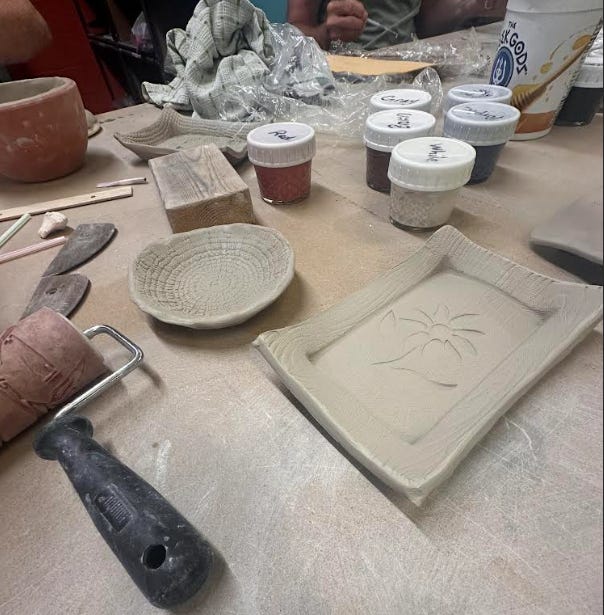As most of you know, I recently had my 5th concussion! By age 22. What a milestone!
I took my recent recovery far more seriously than I had in the past, however, and in the process learned lots about brain health that would benefit the cognitive health of even you injury-free people.
Feeding our brains
I’ve been very intentional about eating in a way that benefits my cognitive health, ensuring a diet that incorporates omega-3s, antioxidants, polyphenols, choline, folate, and Vitamin E and K. These are incredible for improving memory, neutralizing free radicals to prevent damage to our brain cells that is now accelerated due to our environments and lifestyles, creating mood-regulating neurotransmitters (e.g., serotonin, dopamine, etc.), and improving our ability to learn.
What does this brain-first eating look like? Lots of pasture-raised eggs (significantly higher levels of choline, carotenoids, vitamins A, D, E, and K, etc.), wild-caught salmon (for higher omega-3 to omega-6 ratio), spinach, organic berries, walnuts, extra-virgin olive oil (for the highest polyphenol content, with numerous cognitive and metabolic benefits), and 70%+ dark chocolate (for a higher concentration of theobromine and flavonoids). And matcha of course, for its deliciousness, stress-reducing L-theanine, and metabolic benefits.

Learning and expanding
As we approach our mid-twenties, it becomes increasingly important to make focused efforts to stimulate new neural connections. Neuroplasticity is what allows us to learn and retain new information & skills!! But most of our brain’s patterns begin to become solidified in our late 20s - and this maturation is unfortunately accelerated by common daily factors (e.g., sleep deprivation, drinking, highly-processed diets, and environmental pollutants).
“Lifelong learning plays a key role in cognitive fitness by strengthening neural connections and enhancing cognitive reserve — the brain's ability to maintain function despite aging or disease. This reserve builds over time through education, career experiences, and mentally engaging activities, acting as a defense against cognitive decline”
One of the ways to enhance your neuroplasticity, while also achieving a realm of other metabolic benefits, is to exercise and increase your aerobic fitness (e.g., running, cycling, swimming), which elevates BDNF levels, increases hippocampus volume, and delays neurodegeneration due to aging.
Another way is learning through new hobbies, in a way that embraces the process rather than focusing on the outcome. If you want some ideas, here are a few activities I’ve engaged in this past month: pottery, salsa dancing, chess (extremely poorly), climbing, cooking, hiking, and lifting. I also have made efforts to step outside my usual routines to meet new people here in Austin, which similarly to traveling, enhances plasticity by exposing you to novelty.
If its any more motivation to strength train or climb, grip strength (often used as an indicator of overall strength), correlates with a lower incidence of dementia. Strength training is shown to slow the progression of cognitive decline and memory deterioration that occurs as we age. Insane!
Training the muscle of attention
The hardest muscle to build right now is attention. Because everyone and everything capitalizes on stealing our attention away.
One of the smallest but most impactful changes I have made is eliminating noise where I can. For example, I have been driving, eating, showering, and walking in silence. Allowing myself to experience all the senses, be present, and create ample space for my mind to wander.
As Johann Hari states in his book Stolen Focus:
“Without mind-wandering, we find it harder to make sense of the world — and in the jammed-up state of confusion that creates, we become even more vulnerable to the next source of distraction that comes along.”
I have also actively worked to minimize information input, and delay adding inputs as far into my day as I can, to avoid the “cognitive overload” that can occur within ~5 minutes of waking up. This means avoiding looking at my phone in the mornings, deleting most forms of social media, and hiding my phone when I need to lock in. If you want to create the necessary environment to get into a flow state, you cannot have your screen lighting up every 2 minutes.
“Your brain can only produce one or two thoughts in your conscious mind at once. That’s it. We’re very, very single-minded. We have very limited cognitive capacity.”
“If you are focusing on something and you get interrupted, on average it will take twenty-three minutes for you to get back to the same state of focus”
What concerns me about my current job is that I am often looking at a screen for 14-16 hours a day. Excessive screen time has pretty dangerous effects: increased risk of developing neurodegenerative diseases, eye strain, and thinning of the cerebral cortex for those of us under 25. While the screen time is largely out of my control, I can control what I choose to engage in when I do have time. I have slowly started to read again (we are lucky if I finish 3 books this year), and find it amazing that reading on paper changes the way we visualize, absorb, and process information entirely.
“We’re more likely to scan and skim when we read on screens… if we do this long enough, she told me, “this scanning and skimming bleeds over. It also starts to color or influence how we read on paper…. That behavior also becomes our default, more or less.”
I have a friend who reads 30 - 40 paper books per year. Interestingly, one of her most notable traits, observed even by people meeting her for the first time, is that she is incredibly empathetic, with a genuine care to understand others. Seems like this is not just a coincidence :) - reading in print form activates areas of the brain responsible for emotional processing and spatial cognition.
“The more novels you read, the better you were at reading other people’s emotions. It was a huge effect.”
One final powerful tool that is helping me learn to focus again is breathing exercises. Earlier this year, I attended a 3-day camp where I learned breathing exercises. There are numerous free guides online (see Huberman’s breathing techniques for stress, focus, and sleep: here) so that you do not have to attend a camp. Doing this for ~20 minutes when I can allows me to start my mornings with sharpness and clarity versus the mental fog and immediate anxiety I would start my day with before. One study even found that paced breathing can decrease risk of Alzheimer’s by increasing parasympathetic system activity.
Finally, I think this quote from Stolen Focus best captures and summarizes why we need to take the steps to win back our attention.
“If we continue to be a society of people who are severely under-slept and overworked; who switch tasks every three minutes; who are tracked and monitored by social-media sites designed to figure out our weaknesses and manipulate them to make us scroll and scroll and scroll; who are so stressed that we become hypervigilant; who eat diets that cause our energy to spike and crash; who are breathing in a chemical soup of brain-inflaming toxins every day—then, yes, we will continue to be a society with serious attention problems”
So let’s do what we can to take care of our cognitive health and protect our focus.
xoxo,
Riri <3










Thank you for adding Figure 8 🧗♀️. I needed to read this, and you’re amazing for writing it! We shall climb soon & find more matcha spots around town 🤸
i was a brave girl yesterday and decided to fold my laundry in silence with my phone in another part of my apartment. none of the usual music or catching up with a friend on facetime. before i knew it, i was sweeping my floors, then swiffering, then throwing in a load of laundry… it’s actually amazing how seamlessly we can enter flow state when we put the damn phones down